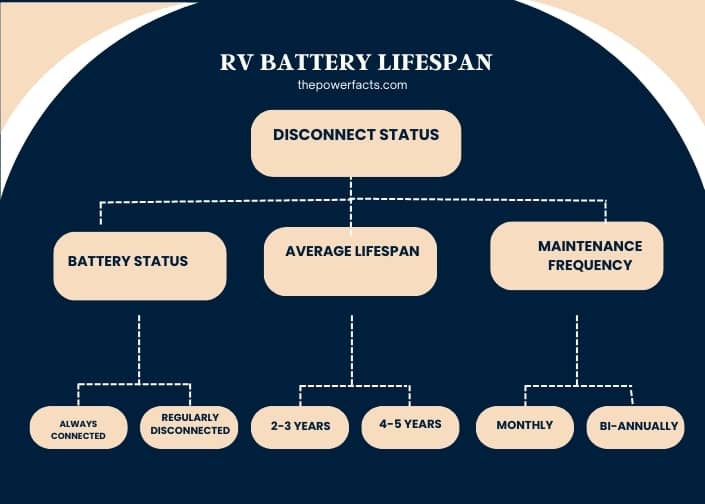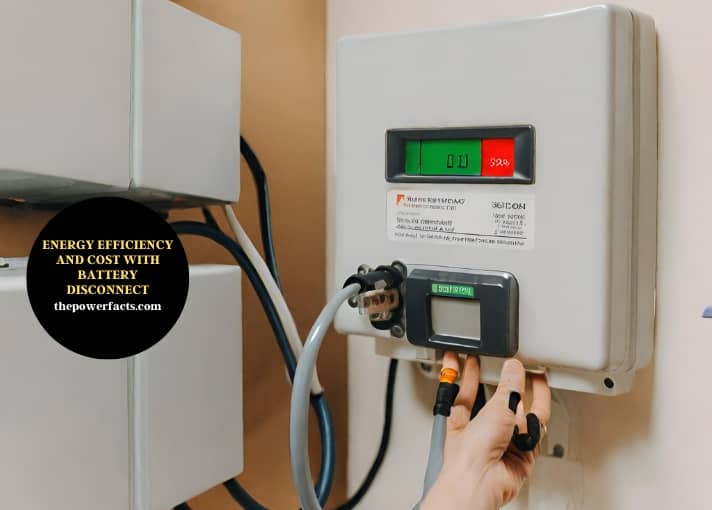Published on: January 7, 2024
Written by Jonas Frank / Fact-checked by Nova Scarlett
The decision to keep a battery disconnect switch on or off while plugged in depends on the specific context and usage. Generally, it is safe to leave it on to maintain the charge, but there are situations where turning it off is beneficial.
In the realm of vehicle maintenance and care, the use of a battery disconnect switch presents a nuanced decision. For vehicles like RVs and boats, which often have periods of non-use, disconnecting the battery can prevent power drain and extend battery life. This is particularly crucial during long-term storage, where a connected battery might slowly lose charge and suffer from reduced lifespan due to parasitic drains from systems like clocks or security features.

Conversely, for vehicles and equipment that are used regularly, keeping the battery connected ensures that all electronic settings are retained and the battery remains charged and ready for use. In modern vehicles, disconnecting the battery can reset systems and require reconfiguration, which can be a hassle for frequent users.
In the context of solar-powered systems, disconnecting the battery might interrupt the charging process, making it essential to understand the specifics of the solar regulator and charging system.
The choice hinges on balancing convenience, maintenance, and the specific demands of the vehicle’s electrical system. Regular evaluation of battery health and understanding the vehicle’s electrical needs are key to making an informed decision.
RV Electrical Systems and Battery Disconnect Impact
In recreational vehicles (RVs), the decision to keep the battery disconnect switch on or off while plugged in is pivotal for system health. This choice directly influences the RV battery’s lifespan and the overall stability of the electrical system. A primary concern is the risk of power surges, which can cause significant damage when batteries are continuously connected. Regular maintenance and understanding the balance between charging and overcharging are essential for longevity.
RV owners must consider the trade-off between convenience and the wear on their electrical systems. Keeping the battery connected offers uninterrupted power but can lead to overcharging and reduced battery life. Conversely, disconnecting can preserve battery life but requires manual management of the system.
RV Battery Lifespan with Disconnect Status
| Battery Status | Average Lifespan | Maintenance Frequency |
| Always Connected | 2-3 Years | Monthly |
| Regularly Disconnected | 4-5 Years | Bi-Annually |

Marine Battery Health Optimization
Marine environments pose unique challenges for battery maintenance, especially concerning constant charging and corrosion. Different types of marine batteries, like deep-cycle and starter batteries, have varied requirements for optimal performance. Constant charging can lead to overcharging, reducing battery efficiency and lifespan.
Ideal charging practices for marine batteries involve regular monitoring and using smart chargers that prevent overcharging. Corrosion prevention is also crucial, as marine batteries are more exposed to corrosive elements like saltwater.
Marine Battery Charging Patterns and Longevity
| Battery Type | Charging Pattern | Expected Longevity |
| Deep-Cycle | Controlled Charging | 6 Years |
| Starter | Intermittent Charging | 3-4 Years |
Safety in Emergency Situations with Battery Disconnect
Considering battery disconnect in emergency situations is vital for safety. In scenarios like fires or electrical shorts, the ability to quickly disconnect the battery can prevent further damage or risks. Emergency protocols often include steps for battery disconnection as a standard safety measure.
Fire risks are significantly reduced when batteries are disconnected, preventing the possibility of electrical fires. Electrical short prevention is another critical aspect, especially in environments with high electrical usage or older wiring systems.
Energy Efficiency and Cost with Battery Disconnect
The choice of battery disconnect status also affects energy efficiency and cost. Energy consumption patterns vary significantly between a connected and disconnected battery. Keeping a battery connected can lead to unnecessary energy use, increasing electricity costs.

An analysis of electricity usage shows that disconnecting the battery when not in use can lead to substantial cost savings. This practice also has a positive environmental impact by reducing unnecessary energy consumption.
Cost Savings with Battery Disconnect
| Battery Status | Annual Electricity Usage | Annual Cost Savings |
| Always Connected | High | Low |
| Regularly Disconnected | Low | High |
Technological Advances in Battery Management
Recent advancements in battery technology have introduced smart chargers and automated disconnect systems. These innovations offer more efficient and user-friendly ways to manage battery health. Smart chargers adjust the charging rate based on the battery’s needs, preventing overcharging and extending battery life.
Automated disconnect systems provide convenience and precision in managing battery status. They can automatically disconnect the battery when it’s fully charged or when the system is not in use, optimizing energy usage and prolonging battery life.
FAQs
Does Battery Disconnect Affect Vehicle Warranty?
Many vehicle owners are concerned about the impact of using a battery disconnect switch on their vehicle’s warranty. Generally, using a battery disconnect switch does not void a vehicle warranty, as it is considered a passive device that doesn’t alter the vehicle’s fundamental mechanics or electrical system.
It’s always advisable to check the specific terms of your warranty. Some manufacturers may have clauses regarding modifications to the electrical system, and it’s essential to ensure that using a battery disconnect switch isn’t interpreted as a modification.
Can Battery Disconnect Prevent Theft?
Using a battery disconnect switch can be an effective theft deterrent for vehicles. When the battery is disconnected, essential systems like the ignition and fuel system are disabled, making it difficult for thieves to start the vehicle. This method is particularly useful for vehicles that are stored for extended periods or in areas with high theft rates. While it’s not a foolproof method, it adds an extra layer of security, especially when combined with other anti-theft measures.
Impact of Battery Disconnect on Modern Electronics
Modern vehicles come equipped with sophisticated electronics and computer systems that rely on a constant power supply. Disconnecting the battery can sometimes reset these systems, leading to a loss of settings or data. For example, radio presets, clock settings, and certain driver preferences might need to be reconfigured. In some cases, disconnecting the battery can also trigger the vehicle’s security system or require a code to reactivate certain functions. It’s important to be aware of these potential inconveniences before using a battery disconnect switch.
Battery Disconnect and Solar Charging Systems
For vehicles equipped with solar charging systems, such as RVs or boats, the use of a battery disconnect switch requires careful consideration. Disconnecting the battery can interrupt the charging process, potentially leading to undercharged batteries.
If the solar system includes a regulator or controller, it can manage the charging process and prevent overcharging, even when the battery is disconnected. Owners should consult their solar system’s manual to understand the best practices for using a battery disconnect switch in conjunction with solar charging.
Long-Term Storage and Battery Disconnect
For long-term vehicle storage, disconnecting the battery is often recommended to prevent battery drain and extend its lifespan. Vehicles that are not used for extended periods can experience battery drain from parasitic loads, such as security systems and digital clocks. By disconnecting the battery, these loads are eliminated, preserving the battery’s charge. It’s important to note that the battery should be fully charged before storage and periodically recharged if the storage period is extended.
Battery Disconnect in Cold Weather
In cold weather conditions, the question of whether to disconnect the battery can be particularly relevant. Cold temperatures can significantly reduce a battery’s performance and lifespan. Disconnecting the battery in a vehicle that is not used during winter can help preserve its charge and prevent damage from cold temperatures.
If the vehicle is used regularly, keeping the battery connected and ensuring it is fully charged can help maintain its health and ensure reliable performance in cold weather.
Summary
The decision to keep a battery disconnect switch on or off while plugged in has significant implications across various applications. From RVs and marine vehicles to emergency safety and energy efficiency, understanding and managing this aspect of battery usage is essential. Technological advancements offer promising solutions for smarter and more efficient battery management, aligning with the needs of modern users and environments.
